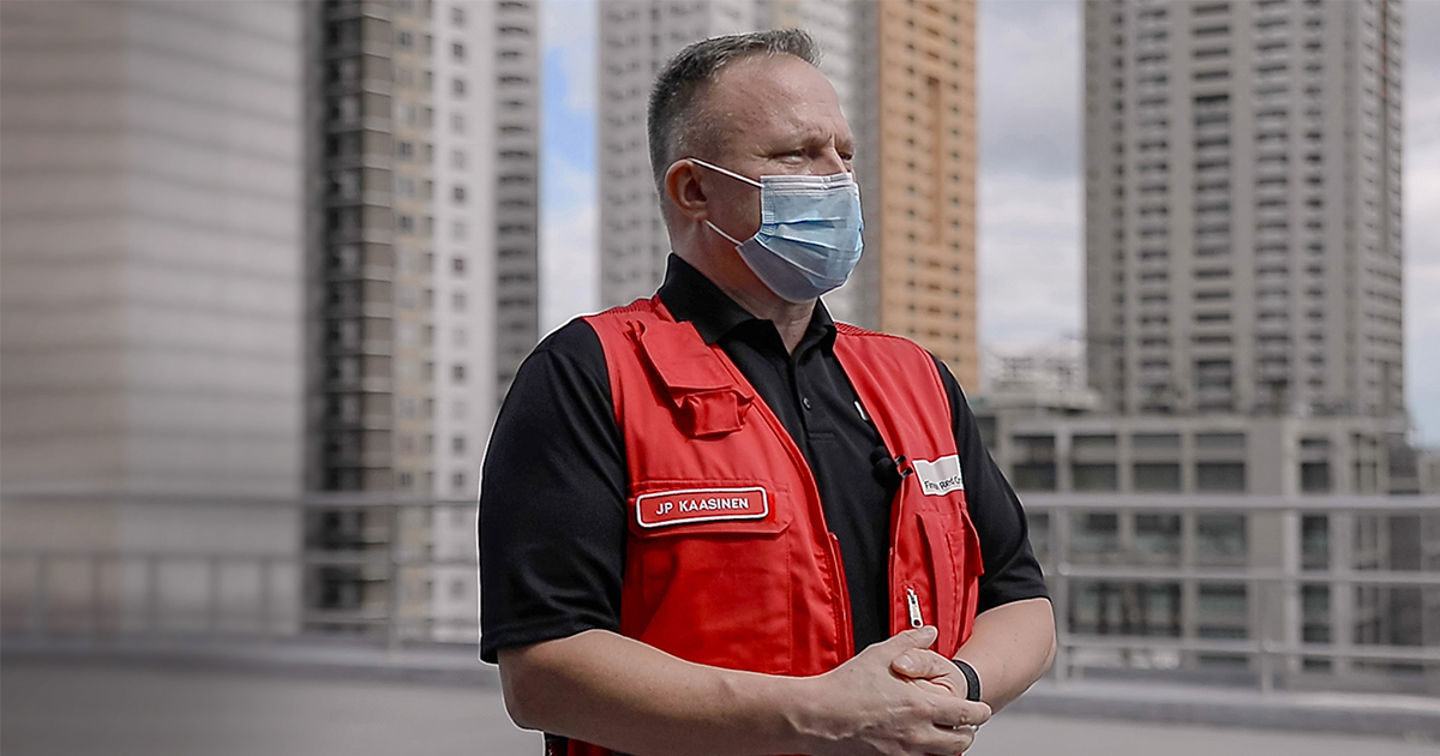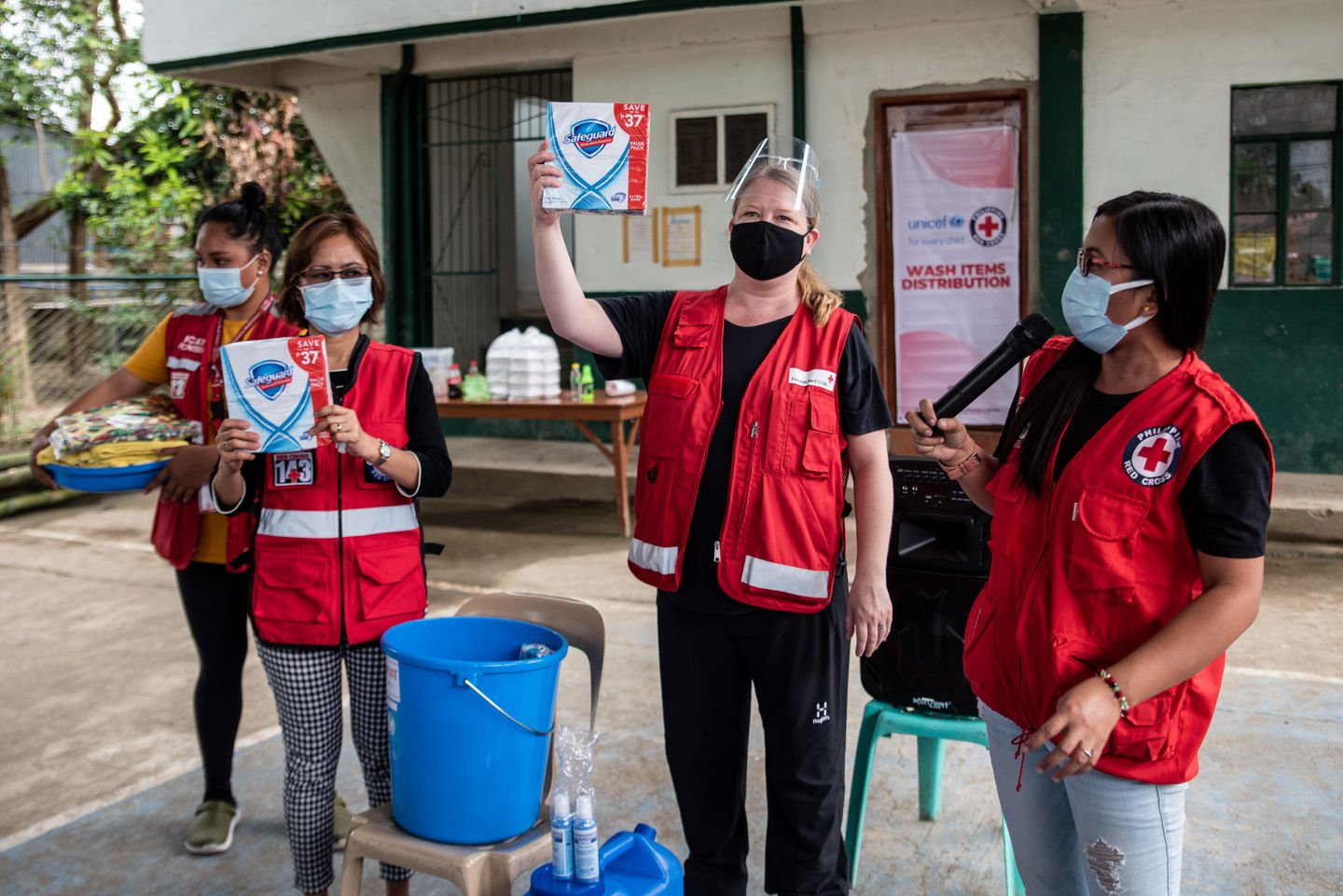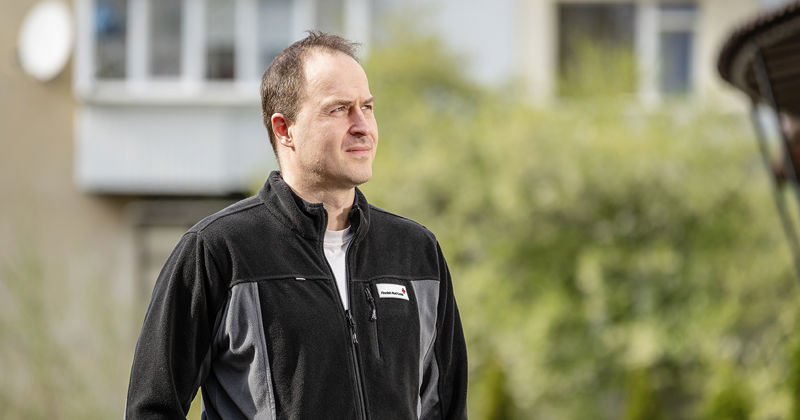Academy of Disasters

J-P Kaasinen is a Red Cross crisis preparedness expert. He is stationed at the Academy of Disasters in the Philippines.
ꟷ I can't stay here until retirement, J-P Kaasinen thought when he was offered a permanent position as a rescue planner in the Länsi-Uusimaa Rescue Department.
Instead, J-P was inspired to learn new things, and he has learned a lot since turning down the position at the Rescue Department.
His master’s thesis on mine ban treaties at the University of Lapland was J-P's first contact with the Red Cross. Since then, J-P has made a remarkable career within the organisation. Firstly, by training people in Finland in matters related to crisis preparedness. And secondly, by building his skills through international aid work – also at home.
J-P's first foreign assignment in the “red vest” was in Nepal when the country suffered a serious earthquake in 2015. He worked as a technician in a field hospital.
ꟷ We always drove the field hospital where it was needed the most. Being Finnish was useful, because I knew how to drive in the snow, J-P says with a laugh, and adds: ꟷ I practically called the local volunteers and asked if it was possible to drive there. Then we started off.
For the last few years, J-P has been working in the Philippines as a country delegate for the Red Cross. He has been in the country on several missions and has built up a good network in the region.
J-P describes the Philippines as an Academy of Disasters:
ꟷ You can't even talk about a preparedness plan here, you have to talk about a continuity plan. So many disasters strike the country every year, from earthquakes to typhoons and volcanic eruptions. In fact, the region is called the Pacific Ring of Fire.
Locals work – Others support
Sometimes you hear people claim that aid workers are what are known as ‘white saviours,’ who come from rich Western nations to poor countries in the midst of the worst distress, and then leave.
J-P Kaasinen does not agree with this idea:
ꟷ We don't go to the Philippines or anywhere else in the world to tell people how to deal with disasters. We learn from locals. The Philippines is a Academy of Disasters.
Foreign aid workers can be used to support the local Red Cross and provide them with special competence.
ꟷ We are here to support the locals, J-P emphasises. ꟷ My strength, for instance, is to work with the international operators in the Red Cross: The Dutch are good at management, the Spanish at building shelters and the Hong Kong Red Cross has strong IT skills.

Aid work is not just about pitching a tent and providing first aid. You need a wide range of skills, and with experience comes knowledge. At the same time, there will be a unique opportunity to promote crisis preparedness practices in Finland as well.
ꟷ You have to know how to make WiFi work, how to take care of hygiene, where to put the kitchen, and what you need for accommodation... We can't use Ikea for this job, J-P says with a laugh: ꟷ Everything has to be well planned.
The culture of helping in Asian countries is something that J-P finds particularly wonderful: there is also a warm welcome for aid workers.
ꟷ When a neighbour is in need, people are prepared to give up even the little food, water and goods they have so that their neighbour can survive the worst. Here, the whole village is one family.
Learning new things is something that continues to inspire J-P in the Red Cross work at the “Academy of Disasters” in the Philippines. Yet even amidst the worst disasters, there are some things that do not change. No matter how big or small the crisis, the basic human needs remain the same.
ꟷ You need to get people to shelter as quickly as possible, and they need to have food and drink, J-P sums up. ꟷ These are the main principles of Red Cross aid work, and they are the same everywhere.

